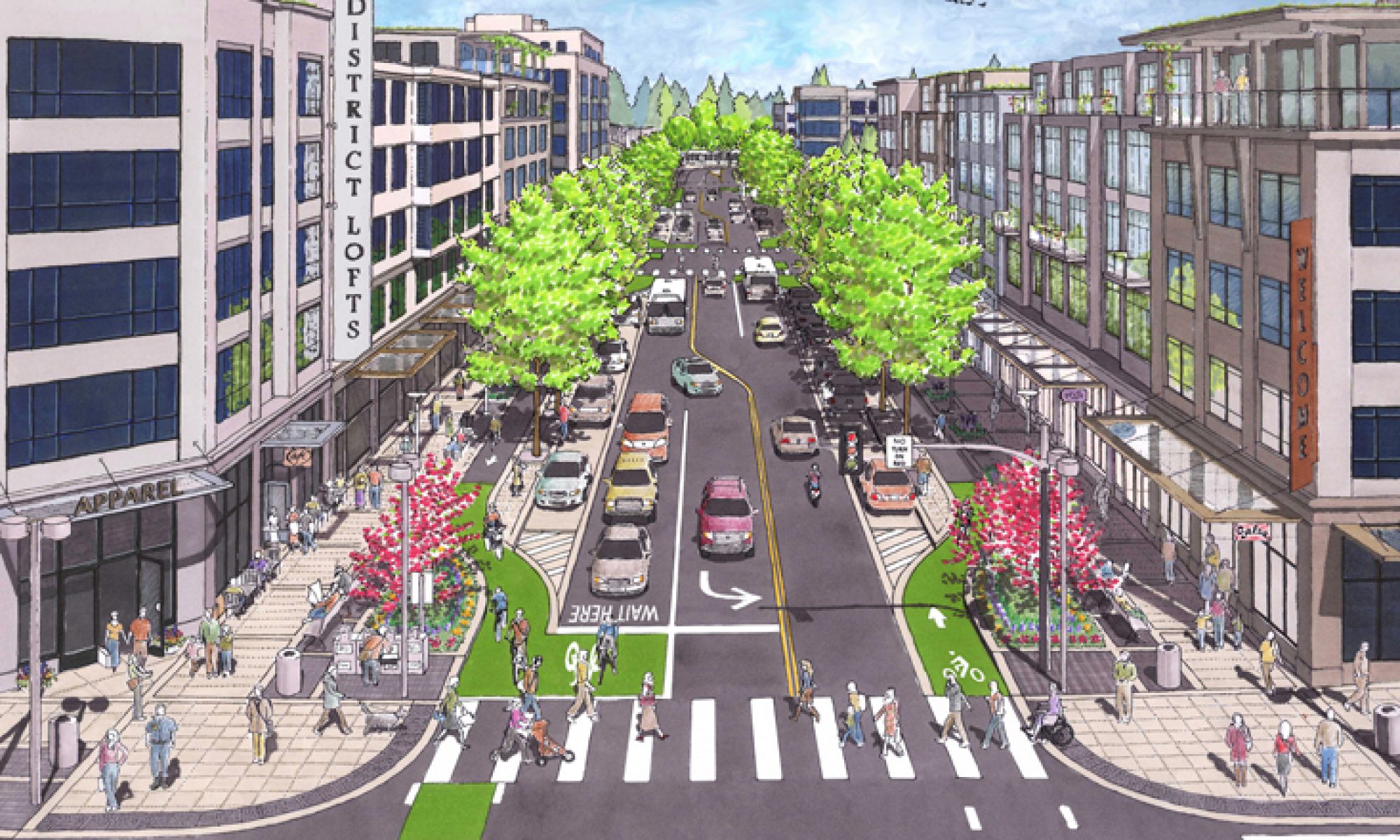Want your city to thrive? Start by rethinking parking lots.
The topic of excessive parking was covered in a recent StrongTowns newsletter. Yeah. We get it. it seems like there is never enough parking available in Asbury Park. Whether you drive, walk, or roll the subject of parking is fraught with misunderstanding, and sometimes triggering.
Read on.
The Washington Post opinion piece (gift article) on March 27th about the damaging effects of excessive surface parking lots in our cities describes the problem:
Surface parking lots eat up people space. “They’re often large fields of empty space,” says Derek Hoetmer, founding principal at urban design firm MCLV, “contributing nothing beyond the sole purpose of storing personal property (cars). They lack the ingredients of what makes cities great: a sense of place.”
“These micro wastelands drain the life from neighborhoods, blighting American cities. It’s time we imagine better.”
Did you know that there are 8 parking spaces for every car in the US?
America has eight parking spaces for every car.
Cities like Buffalo are getting rid of parking minimums and changing zoning, which opens up valuable space.
Many former parking lots are turning into housing. (Some are also becoming parks, in cities including Dallas and Detroit; in San Diego, part of one parking lot has been restored to a salt marsh.) As cities realize that they’ve built more parking than they need, dozens have eliminated parking requirements in new buildings, as described in this Fast Company article.
Excessive property dedicated to parking also has a negative effect on kids’ health. There’s a short anecdote in the WP article about kids playing in an empty parking lot being kicked off the property. A bank that owned the lot didn’t want the liability. The lot has been vacant, and unused for years; but this use of empty space for play could not be permitted.
Advocates for open streets and open playgrounds know that if cities aren’t built with the health, development, and independence of kids in mind, the result is an insidious public health emergency.
School playgrounds should be open off school hours, public parks should have active play equipment, and parking lots can be repurposed as play spaces for kids and families.
Psychologist Jonathan Haidt talks about the great rewiring of childhood in his new book, The Anxious Generation
Haidt says childhood is increasingly being spent in virtual worlds rather than the real one, and early years are so solitary, sedentary, and coddled.
For the first time — maybe in history? — a middle-aged man is more likely to be admitted to the hospital for unintentional injuries than a boy aged 10-19.
The move from a play-based childhood to a device-based one has contributed to an epidemic of obesity, and mental illness among young people, especially girls. The rates of anxiety, depression, self-harm, and even suicide are skyrocketing. There are other related factors, including what Haidt describes as “collapse of adult solidarity”
Matt Levy’s 2010 documentary, New York Street Games opens with the words: “Before cellphones, BlackBerries and Facebook . . . before a neighbor’s doorstep required an invitation . . . before ‘playdates,’ there was play.”
There’s been a decline in outdoor activities since the 1970s. Bike riding to school is down 31% since 1995, according to American Sports Data, a research firm. Only 6% of children ages nine to 13 play outside on their own. Kids in low-income communities, are spending 40 hours a week with electronic media, according to the Kaiser Foundation.
“I worry that we’re going to be a society in 50 years of computer kids, people who are desensitized to other human beings,” said Levy. “If I start using technology to talk to you on a full-time basis, that’s a problem.”







